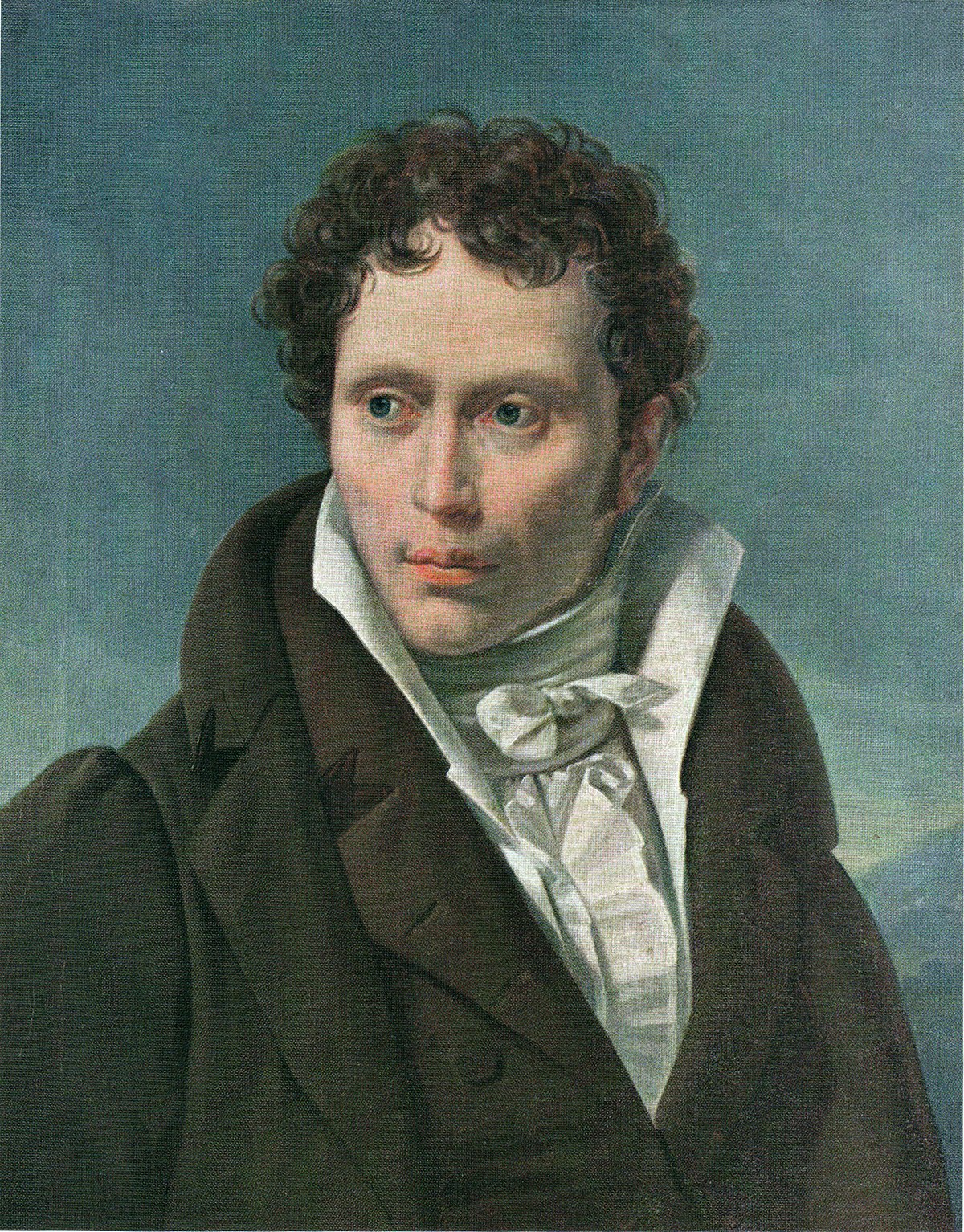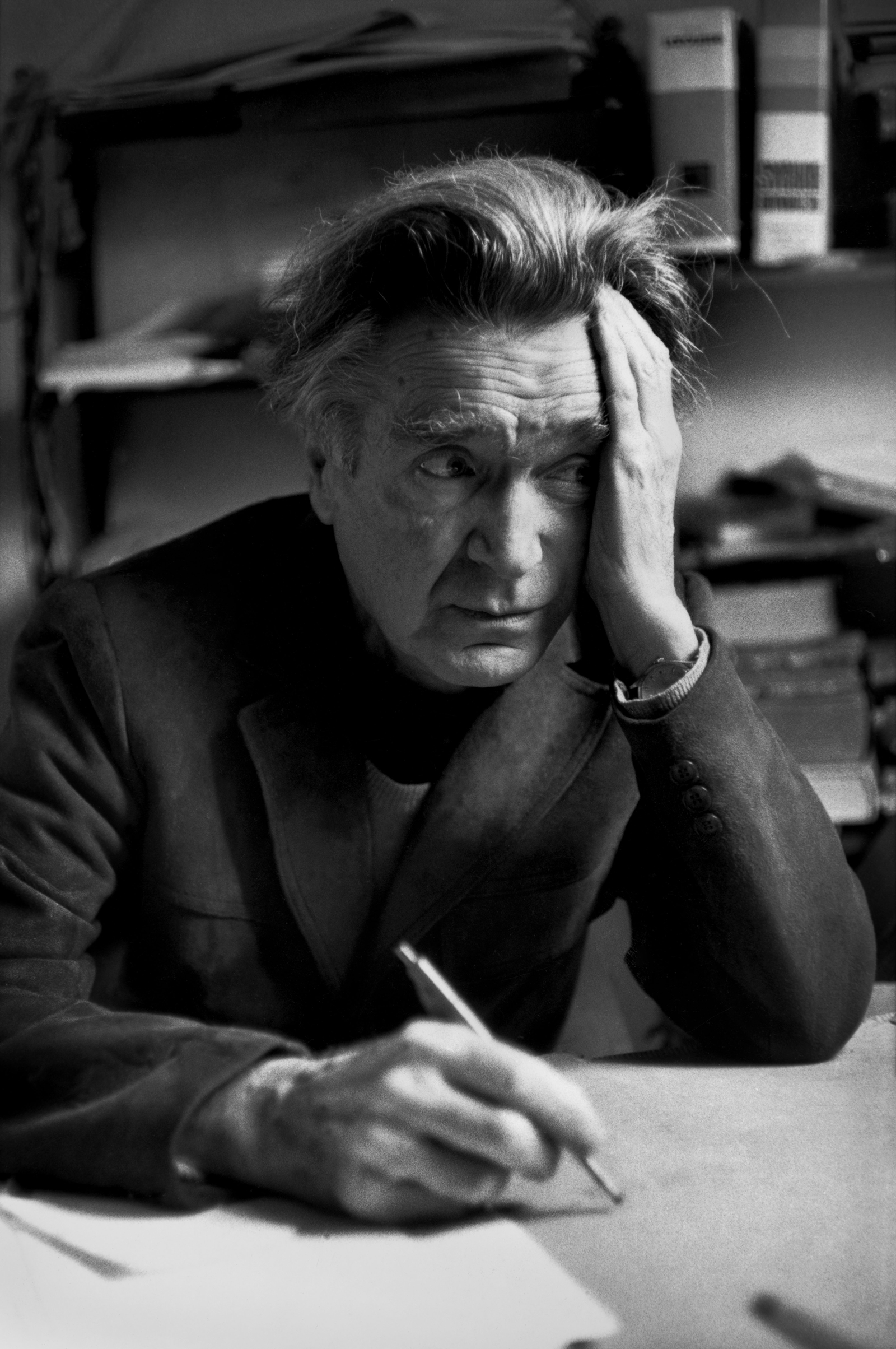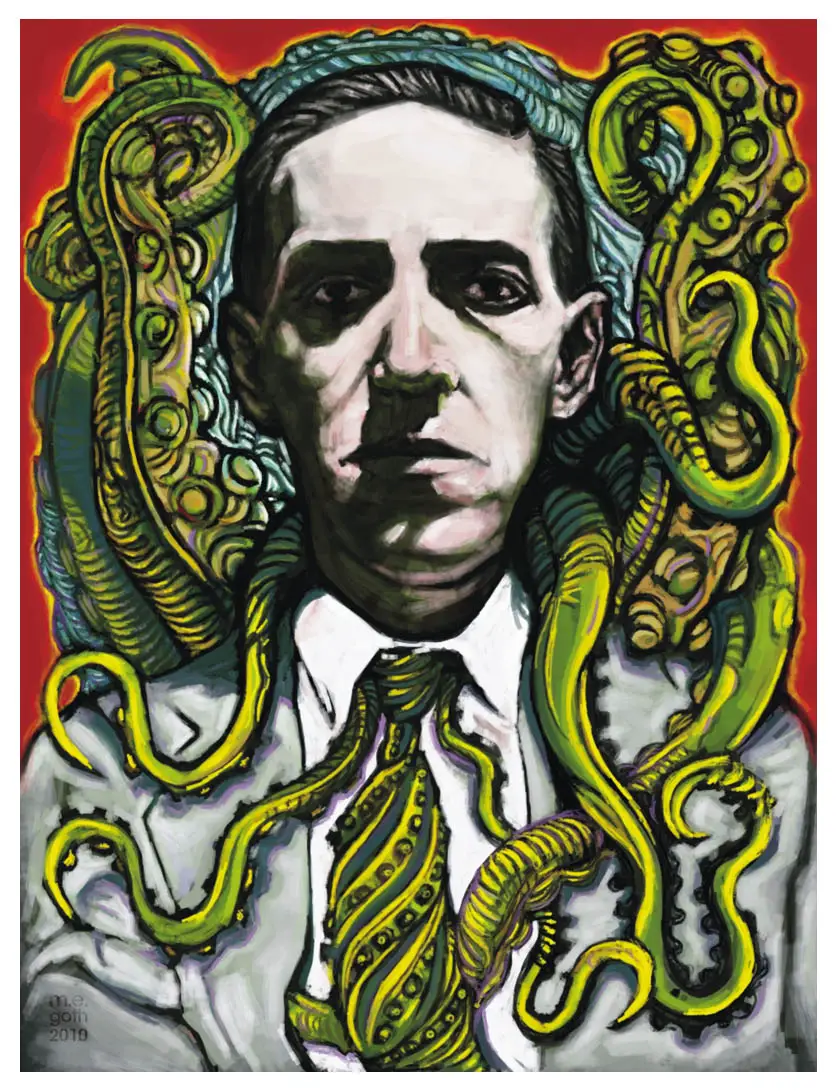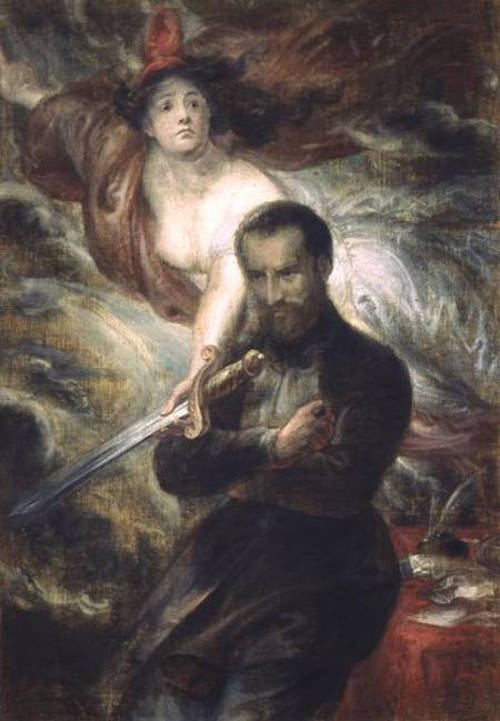In view of the release, scheduled for January 14, of the third season of "True Detective", we propose to our readers the cycle of articles we curated for YAWP on the esoteric elements of the successful television series.
di Marco Maculotti
article originally published on YAWP: Journal of Literatures and Philosophies
One of the strengths of the first season of T is the complex and intriguing psychology / philosophy of the protagonist Rust Cohle. First of all, it must be emphasized that - despite the fact that he defines himself (simplifying not a little) "realist, pessimist and agnostic- an exhaustive analysis of his Worldview lead us towards philosophical if not even 'esoteric' shores. Rust's disenchanted and nihilistic vision marks the moments more metaphysicians of the serial: sometimes the intellectual gap existing between Rust and his colleague Marty almost makes the dialogues between the two appear as occult teachings rendered by a master to an initiate, who only rarely manages to understand the reflections that are proposed to him. On the other hand, this is perfectly understandable, as most of the time Rust's perceptions are beyond any sentimentality and politically correct ("We are all in the same ghetto, a giant sewer in space» [1]). In Rust's view, the deepest truths are often the most bitter.

The influence of the thought of Cioran and Schopenhauer
It is worth asking: what and to whom the authors of T to shape the Worldview by Rust Cohle? Without prejudice to the declared inspiration of the work of Thomas Ligotti (especially the essay The conspiracy against the race human [2], work from which several Rustian monologues of the series are almost equal-equal), Nic Pizzolatto, in some interviews, mentions the influence of other thinkers, such as the German philosopher Arthur Schopenhauer and the Romanian Emil cioran. The influence of the latter in particular is very clear, if we analyze some of the innumerable reflections that he has left us. Neither The inconvenience of being born, for example, he reflects on its existence in fully rustic terms, stating:
"I know my birth is a coincidence, a laughable accident, yet, as soon as I let myself go, I act as if it were an event capital, indispensable for the functioning and equilibrium of the world. "
In the same text, the Romanian philosopher reflects on the 'reality' and consistency of human actions and purposes, stating peremptorily:
" While we act we have a purpose; but the action, once concluded, does not have to we greater reality than the goal we pursued. There was therefore nothing really consistent in all of this, it was just play. But there are some that they are aware of this game during the action itself: they live there conclusion in the premises, the realized in the virtual, undermine the seriousness with the very fact of existing »
This 'identikit' traced by Cioran seems to fit perfectly with the figure of the protagonist of the serial in question here: it is precisely the disenchantment with which Rust experiences the situations in which he finds himself that allows him to govern them, without being swallowed up by them - unlike my colleague Marty. For Cioran as for Rust Cohle, the illusion that leads to consider one's existence as more than a mere 'game' is the real cancer responsible for the degeneration of human society - a theme that also emerges in the philosophical vision of the aforementioned Schopenhauer, indebted to Hindu wisdom and above all by Upanishad. Let's compare the ruminations of the Romanian philosopher with those of Cohle, who in an episode of the series states in no uncertain terms:
“I have seen the end of thousands of lives, young, old. Everyone is so certain of their real being that their own sensory experience has constituted a unique individual, endowed with purpose, with meaning. They are so sure that they are more than one biological puppet. Well, then the truth comes out and everyone realizes that once the strings are cut, everyone falls »
Here it is possible to feel the heavy influence, admitted by Pizzolatto himself, who had the philosophy of Arthur Schopenhauer, which ne Il world as will and representation was able to write [3]:
“Men look like watches being wound and walking, without knowing why; and every time a man is generated and given birth, the clock of human life is loaded again, to repeat once again, step by step, beat by beat, with insignificant variations, the same music already played countless times. "
« Each individual, each human face and each life is but a brief dream of the natural spiritual infinity, of the permanent will to live; it is nothing but a new fugitive image, which the will traces as a game on the infinite sheet of space and time, letting it last for a barely perceptible moment in front of the immensity of those, and then canceling it, to give rise to others. "
« It is truly amazing how insignificant and meaningless, seen from the outside, and how dull and unreflective, felt from within, the life of almost all of humanity goes by. She is a languid aspiration and suffering, a dreamy wobble through the four ages of life to death, accompanied by a row of trivial thoughts. »
Similarly to Schopenhauer's philosophical vision and Rust Cohle's psychology, Emil Cioran related the "vision of non-reality» he was born in "universal vacuum»With the maximum revelation that we have reported above: existence is fundamentally a "game", and yet not a playful and fun experience, but a engulfing mechanism which, however, if faced without illusions or embellishments of any kind, would have the merit of leading the 'awakened' to a profound transformation (such as the one that invests Cohle in the concluding lines of the serial, especially in his 'journey into the afterlife'). Thus observes Cioran about it:
«The vision of non-reality, of universal emptiness, is the combined result of a daily sensation and an abrupt thrill. Everything is play - without this revelation, the feeling of dragging on through the days would not have that streak of evidence that metaphysical experiences need to distinguish themselves from their counterfeit, ailments. Because every malaise is nothing more than an aborted metaphysical experience. "

Birth as a curse
One of the central thoughts of Rust Cohle's psychology is exposed to us in the second episode of the series, when he states: «Think of the hubris it takes to snatch a soul from the plane of non-existence and thrust it into this ... flesh, forcefully introduce a life into this garbage dump» [4]. To demonstrate how even this reflection is fully in line with the Weltenschtaung cioraniana we quote the following aphorisms of the Romanian philosopher:
«I do not forgive myself for being born. It is as if, by insinuating myself into this world, I had profaned a mystery, betrayed some solemn commitment, committed a crime of unprecedented gravity. "
« If attachment is bad, it is necessary to look for its cause in the scandal of birth, because to be born means to attach oneself. The detachment should therefore try to make the traces of that scandal, the most serious and intolerable of all, disappear. "
«Not to be born is undoubtedly the best formula that exists. Unfortunately, it is not within anyone's reach »
Birth in 'this world' thus appears to be the worst of curses for the human being: yet there is no way to avoid it, since it is precisely the birth on the physical plane - the 'fall' of the soul from the "plane of existence" - which, likewise in Indian philosophy, is configured as the dimension of non-life or rather of physical non-existence - a to allow anyone to 'exist'… even though this type of 'existence' is a kind of deception, a trap from which one cannot escape. With these premises, even the most nihilistic ruminations of Cioran find meaning, who peremptorily confesses: "If a time, in front of a dead, I asked myself: "What was the point of being born?", now I ask myself the same question in front of every living person».
Humanity as an accident
However, in the writer's opinion, Pizzolatto was inspired not only by Cioran and Schopenhauer (and, of course, Ligotti) for the genesis of the psychology of his more complex character. Here, we want to propose this excerpt [5]:
« This human race of ours is but a trivial accident in the history of the universe. In the annals of eternity and infinity it is no more important than a child's snowman in the history of peoples and of the nations of this planet. Moreover: humanity could not be anything else that an error - an anomalous development - a disease of nature - an excrescence on the infinite body of evolution, like a wart on a hand? Could the complete destruction of humanity, and of life in general, not be of benefit to Nature as a whole? "
Are these words from Rust Cohle? Not really, but they come very close. The text is taken from a letter that the writer HP Lovecraft sent, in August 1916, to three of his correspondents. We now report a monologue by Rust in the first episode of the series, to appreciate the similarities [6]:
“I think self-awareness is a tragic misstep in human evolution. We have become too aware of ourselves, nature has created an aspect of nature that is separate from itself. We are creatures who by natural right should not exist. We are things that delude themselves into having a self, a secretion of sensory experiences and sensations, programmed to have the total certainty that each of us is someone, when in reality we are nobody.. I think the honorable thing for our species is to deny our programming, stop breeding, walk hand in hand to extinction, a last midnight, brothers and sisters pulling themselves out of an infamous destiny. "
Il cosmic pessimism Rust goes as far as to what, in the eyes of his colleague Marty, appear to be the most outrageous paradoxes that can be contemplated: the denial of anthropocentrism, the senselessness of human evolution, the total absence of a meaning in existence and, finally, the hope for a definitive extinction. The influence of Lovecraft's thought on Rust Cohle's psychological genesis emerges in several points by consulting the large corpus letter from the Providence writer: in a letter to R. Kleiner dated 1921, he peremptorily affirms [7]:
« There is no such thing as a final epilogue, because life in the universe is nothing more than an infinite chain with no purpose, with no origin or point of arrival. […] Life has no meaning or guiding principle - man is nothing more than a microscopic fragment in that cosmic mass of matter which is the chosen place for capricious, uncontrollable natural forces. In a given moment, we are what we are simply because we exist. Sometimes it is possible for us to foresee, starting from our present state, what presumably will become of us: but the real causes at work are in the hands of forces that we cannot know. "
For Lovecraft, therefore, human existence has no spiritual or superior foundation: simply è, with all the problems and evils that this implies. The life of human beings, far from being firm in the hands of those who live it, seems rather governed by a series of "uncontrollable cosmic forces " that we cannot oppose in any way, men being nothing but puppets in the hands of a monstrous and engulfing system, miserable cogs that are part of an imponderable organism. In this vision of man at the complete mercy of the elemental forces of the cosmos we seem to feel echoes of Nietzsche, who stated that "the terrible energies - what is called evil - are the cyclopean architects and pioneers of humanity» [8].
The same nihilistic view regarding the position of humanity in the cosmic drama can be found in T, obviously through Rust's mouth: "We now know we are disturbing paradoxes. And the worst possible thing you can know - worse than knowing that we are descended from a mass of microorganisms - is that we are nothingness instead of being someone, puppets instead of people.". As proof of this - or perhaps unconsciously -, during the interrogation in 2012, Rust models the empty beer cans with his own hands to give them the shape of anthropomorphic puppets, representing the people who over the years have been involved in crimes.

A cosmic fatalism
The influence that Lovecraft's thinking has exerted on T also emerges clearly when reading the essay by Michel Houellebecq on the Providence writer; we read, for example, that for Lovecraft [9]:
“The universe is nothing more than an accidental combination of elementary particles. A transitional figure towards chaos, which will eventually swallow her up. The human race will disappear. Other races will appear and then disappear in turn. The skies will be cold and empty stretches, furrowed by the dim light of half-dead stars [the "Black Stars" of Carcosa, ed]. Which, in turn, will disappear. Everything will disappear. And human actions are free and meaningless just like the free movements of elementary particles. The good, the bad, the morals, the feelings? Pure "Victorian fictions". Only selfishness exists. Cold, intact and radiant »
This cosmic fatalism and the consequent, terrible awareness that humanity has no particular function or role within the immense cosmic matrix - visions that unite the protagonist of T and the Providence writer - are also common to the French revolutionary and socialist theorist Louis auguste blanqui, who already in the nineteenth century mocked the "myth of progress" and positivism with ferocious irony, thundering [10]:
“At this moment, the entire existence of our planet, from birth to death, is reproduced in every detail, day after day, on myriads of brother stars, with all its crimes and misfortunes. What we call progress is imprisoned on every earth, and with it it vanishes. Always and everywhere, on the earth's surface, the same drama, the same scenario, the same narrow stage, a turbulent humanity, infatuated with its own greatness, which believes itself to be the universe and which lives in its prison as if it were an immensity, to disappear soon together with the globe that has carried with the deepest contempt the burden of its pride. Same monotony, same immobility in all the other stars. The universe repeats itself endlessly, and stomping around without advancing. Eternity imperturbably recites the same representations in infinity. "
From the comparison of the absolutely non-anthropocentric views of the authors - Cioran, Schopenhauer, Lovecraft and Blanqui; in addition to Ligotti - who we have proposed here as the main inspirers of Worldview by Rust Cohle in T the same specter emerges that frightened Nietzsche del Zarathustra, namely the terrifying realization that [11] «in the face of the inflexible laws of nature, human will is nothing but a whim» and that human turbulence "certainly upsets humanity"But"it does not disturb the cosmic order» [12], to the point that "the same social revolutions seem to be thwarted by cosmic ones» [13].

Note:
- T, episode 1, Rust Cohle
- T. Ligotti, The conspiracy against the human race, Il Saggiatore, Milan 2016
- A. Schopenhauer, The world as will and representation, §58
- T, episode 2, Rust Cohle
- HP Lovecraft: The horror of reality, edited by G. de Turris and S. Fusco, Mediterranee, Rome 2007, p. 30
- T, episode 1, Rust Cohle
- HP Lovecraft: The horror of reality, P. 63
- F. Nietzsche, Human, too human, Adelphi, Milan 1965, § 246
- M. Houellebecq, HP Lovecraft. Against the world, against life, Bompiani, Milan 2005, p. 18
- A. Blanqui, Against positivism, available online: https://www.marxists.org/francais/blanqui/1869/positivism.htm
- F. Desideri, afterword to LA Blanqui, Eternity through the stars, SE, Milan 2005, p. 85
- Ibidem
- Ibidem

Ce qui est intéressant c'est que la plupart de ces vues philosophiques sont / vont être bouleversées / obsoletisées par les connaissances qu'on a maintenant dans les domaines des neurosciences (conscience, sentience), des impacts psychologiques de la violence, de la psychologie de l'attachement, mais aussi en éthologie, en philosophie morale, etc. et qui démontrent – entre autres choses – que l'espèce humaine est loin d'avoir le monopole de la conscience de soi, de la conscience de la mort, des rituels, ds troubles mentaux, de la dépression, des conditionnements et croyances Limitantes, etc. (toute chose qui peuvent influencer / biaiser / limiter des raisonnements philosophiques / métaphysiques) mais aussi en quoi notre culture spéciste (cf. Lumières, suprématisme humain) et le clivage psychique lié à cette situation (déni, aveuglement, hypocrisie) limit affreusement nos capacités de raisonnement dans ces domaines.
J'aurais payé cher pour voir ce qu'un Cioran ou un Schopenhauer se déconditionnant du spécisme (et – partant – de l'idée de Nature, de tout essentialisme, etc.) auraient alors écrit. 🙂